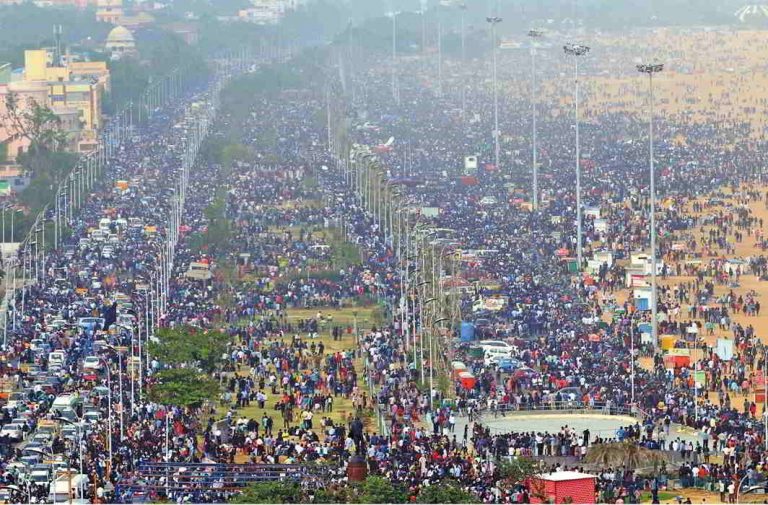
What is to be done when a court order is violated by people and a state that is bent on pleasing the electorate? The constitution and independence of the judiciary should be respected
~By Justice Narendra Chapalgaonkar
The Supreme Court had last month deferred its order on Jallikattu, following a furore from the people of Tamil Nadu. This postponement followed an application for a stay of its own order, which had quashed a notification of the Union government allowing Jallikattu on certain conditions.
Meanwhile, the governor of Tamil Nadu promulgated an ordinance permitting this sport on January 22. While various places in the state celebrated it, some demanded a permanent solution by an act of the legislature.
The Tamil Nadu legislature promptly enacted a law as demanded. The state machinery had not shown such promptness in discouraging the demonstrations in favour of Jallikattu. When the new law was again challenged, the Supreme Court reminded Tamil Nadu government of its duty to maintain law and order. The Court also conveyed to the government through its lawyers: “When the Supreme Court, the final arbiter of the Constitution, is seized of the matter; there should be complete obeisance and compliance.” Sanctity of the independence and orders of the Court should always be protected by the state power. It is not a discretionary or optional function. Avoidance would be dereliction of conductional duty.
As to whether Jallikattu amounts to cruelty or unethical treatment of animals is, no doubt, an important question. But this episode also raises more important questions concerning judicial independence. When a matter is pending before a court, can demonstrations and morchas be justifiable ways of expressing an opinion? There are lawful ways to appear before court and submit one’s point of view. Courts should be permitted to decide matters in a cool atmosphere and without external influence.
Politicians should be courageous to ask people to be restrained and accept the verdict even if it is against the popular wish.
Courts cannot be forced to decide any matter in a particular way. Morchas are often taken out as a way of protest to urge courts to convict or acquit someone. This is certainly not a happy situation for the judge. If we have to work under the constitution, we must respect the independence of the judiciary.
No doubt the media has many times unearthed crimes and improper deeds of people in high offices. But at times, it too enthusiastically oversteps and expresses opinions about the merits of a pending case. Biographers of some eminent judges of yesteryears have revealed that these legal luminaries refrained from reading the newspapers so as not to be influenced by them in a case. But in today’s world, one cannot escape from the cacophony of the electronic media.
Following the way shown in the Jallikattu case, some other states are likely to demand a restoration of similar sports there which were banned by courts.
Cart race and Nag puja (snake worship) were objected to by courts on the ground of cruelty to the animals and reptiles. If any sport is scheduled on a particular day of the religious calendar, it acquires a cultural status. If any religious practice, including a sport, is objected to on the ground of public safety and cruelty to human beings or animals, there is a public outcry that this is interference in culture or religion. Few see merit in the objection.
A state run by the representatives of people is naturally shy to take action and the courts have to step in. There is a long history of social reforms in India which were opposed by the majority of vocal people. When people do not accept a reform, the law remains on the statute book as a dead word. Despite the Child Marriage Restraint Act being in operation for more than 80 years, such marriages are common in some parts of the country. Similarly, human pyramids in the Dahi-Handi sport in Maharashtra have left dozens crippled for life. Even then, it is difficult to regulate it.
When a crowd commits an act which violates directions of a court, what is to be done? No court order can be enforced unless the state power supports it. Governments normally avoid earning the displeasure of their electorate. If reforms touching the religious or cultural life of the society are desired, public education prior to such reform by law is necessary. In the 19th century, social leaders performed the unpleasant duty of bringing in reforms. In the recent past, leaders appeased voters, not educated them. Courts, acting in defence of the constitution, were left to fight a lonely battle.
Now the Supreme Court is again seized of the matter. It has refused an interim stay to the new law, rightly so, since there is a presumption about the validity of a statute. The Court will have to decide its constitutionality. Parties will have to wait and respect the verdict when it comes.
If any order of the court is defied and people act openly against it, it is disrespect to the constitution. It naturally saddens everyone who loves constitutional governance. One may differ with the propriety of a court’s order, but to justify the disobedience is more injurious.
—The writer is a former judge of Bombay High Court
Lead picture: Protestors at Marina Beach, Chennai, expressing their anger at the court order on Jallikattu. Photo: UNI

